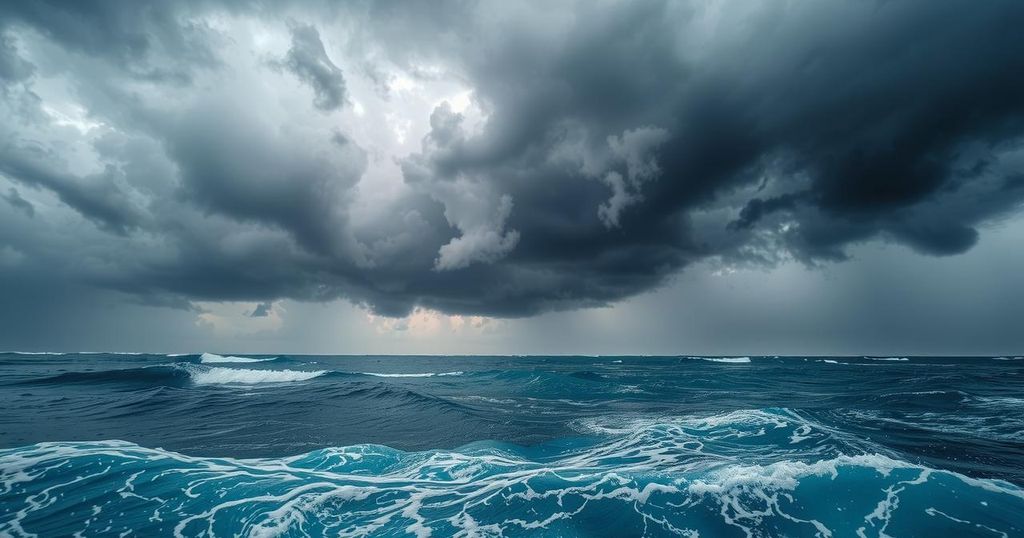Tropical Storm Dikeledi Threatens Mozambique After Fatal Impact on Madagascar

Tropical storm Dikeledi has moved towards Mozambique, having resulted in three deaths in Madagascar and floods in Mayotte. The storm, which has downgraded from a cyclone, continues to pose a threat to the region, with predictions of intensifying weather conditions as it approaches Mozambique, especially in the Nampula region where destructive winds and heavy rainfall are anticipated.
Tropical storm Dikeledi is currently moving towards Mozambique after wreaking havoc in Madagascar, where three fatalities were reported along with severe flooding in Mayotte, a French territory. The storm initially struck Madagascar as a cyclone, producing high winds and substantial rainfall, and has since downgraded to a severe tropical storm. Mayotte remains under a red alert due to the ongoing threat of heavy rains and strong winds, inducing a response from local authorities to protect vulnerable communities.
The aftermath of cyclone Dikeledi is particularly distressing, as the region is still recovering from the devastation caused by the earlier Cyclone Chido, which resulted in numerous casualties in Mayotte and Mozambique. In Mayotte alone, Chido caused the deaths of at least 39 people and injured over 5,600 individuals. The local population is enduring significant psychological strain due to the recurring nature of these climatic events, raising concerns about future storms during the ongoing rainy season.
As of Monday, Dikeledi is situated approximately 150 kilometers from the coast of Mozambique. Meteorological authorities predict that the storm may intensify further as it traverses the warm waters of the Mozambique Channel, potentially evolving into a more severe cyclone. Regions such as Nampula in Mozambique are bracing for adverse weather conditions, which include torrential rains and destructive winds.
The red alert issued in Mayotte restricts travel for residents to safeguard against the storm’s effects. Yet, on the ground, some inhabitants have been spotted leaving their homes, indicating possible shifts in compliance with safety measures. Local emergency services continue their efforts to respond to the damage inflicted by both storms, with thousands mobilized for assistance and accommodation for displaced individuals.
The Indian Ocean cyclone season generally spans from November to March, during which tropical storms and cyclones can develop with increasing intensity due to rising sea surface temperatures. This phenomenon, closely linked to global warming, has been observable in other oceanic regions. Recent events, particularly Cyclone Chido which left devastating impacts across Madagascar and Mozambique, have heightened the vulnerability of these areas, intensifying the urgency for effective disaster management and community preparedness as they undergo further threats from storms like Dikeledi.
In summary, tropical storm Dikeledi poses significant dangers as it moves toward Mozambique, having already caused casualties and flooding in Madagascar and Mayotte. The region’s recovery from the prior devastation inflicted by Cyclone Chido adds to the challenges faced by communities. Continuous monitoring and preparedness will be critical to mitigate further risks associated with this and potentially future storms, fostering resilience in a climate-impacted landscape.
Original Source: www.arabnews.com






